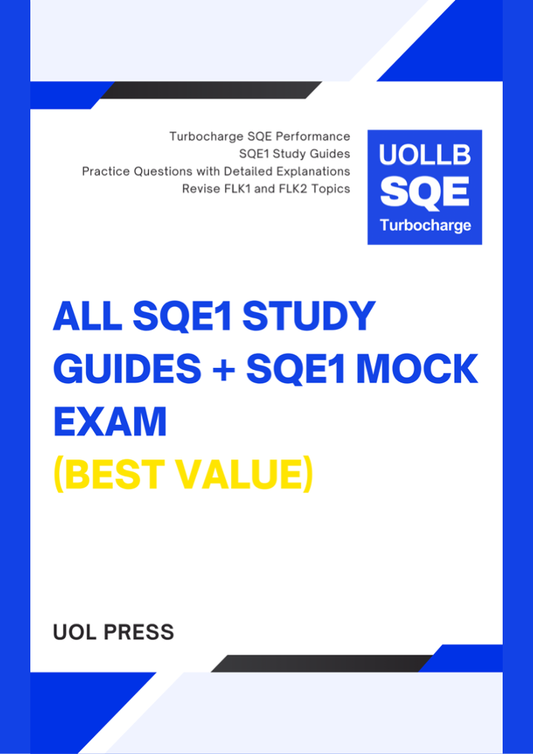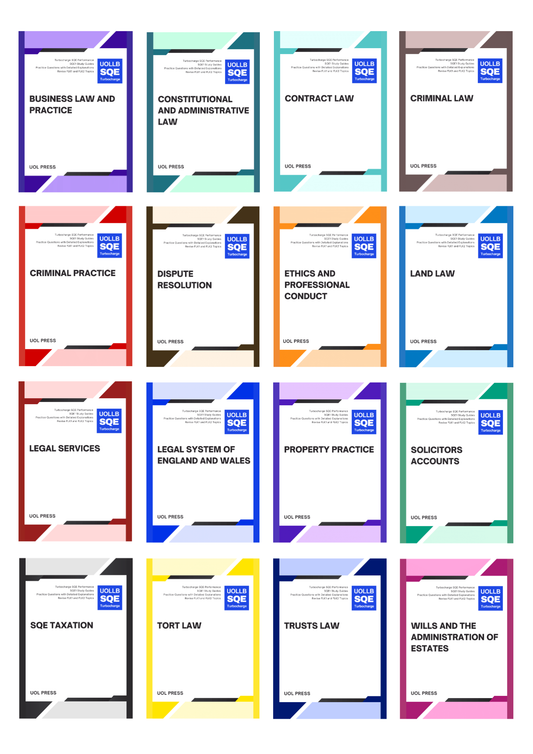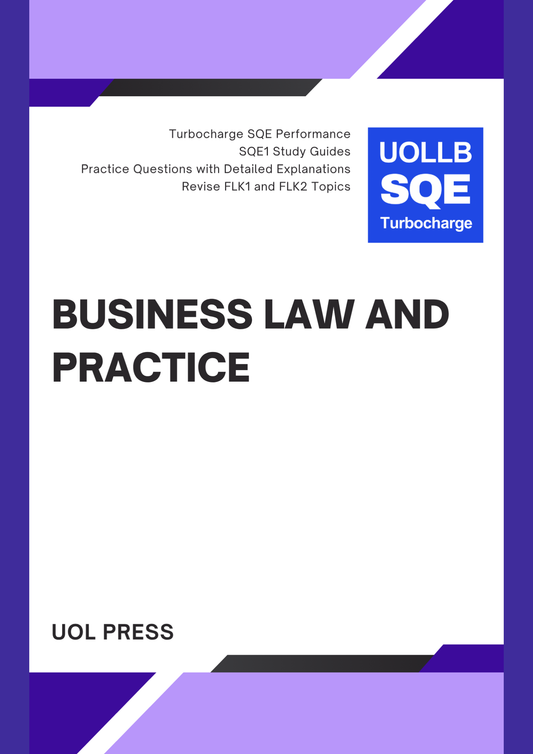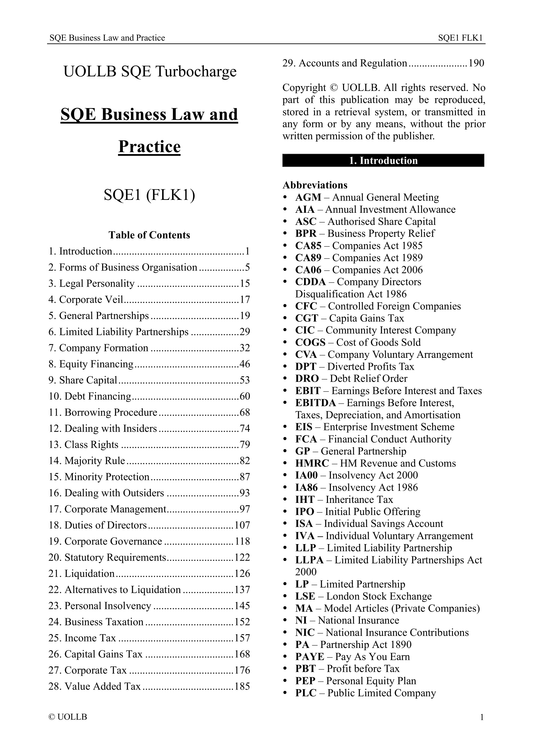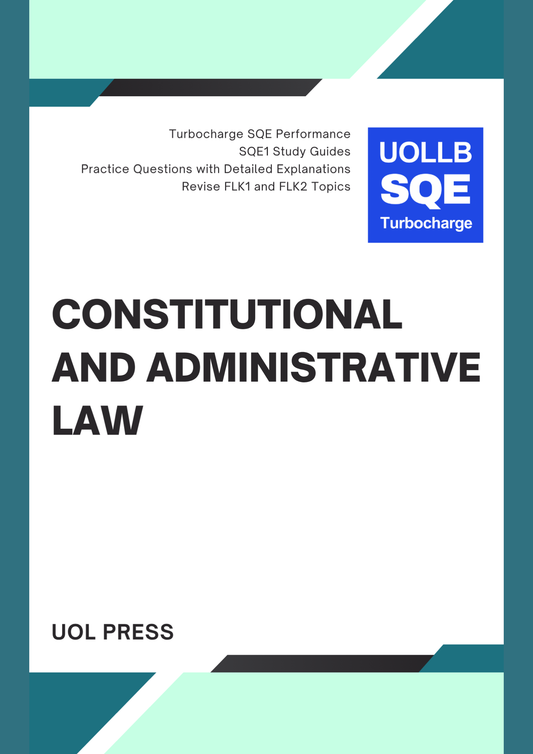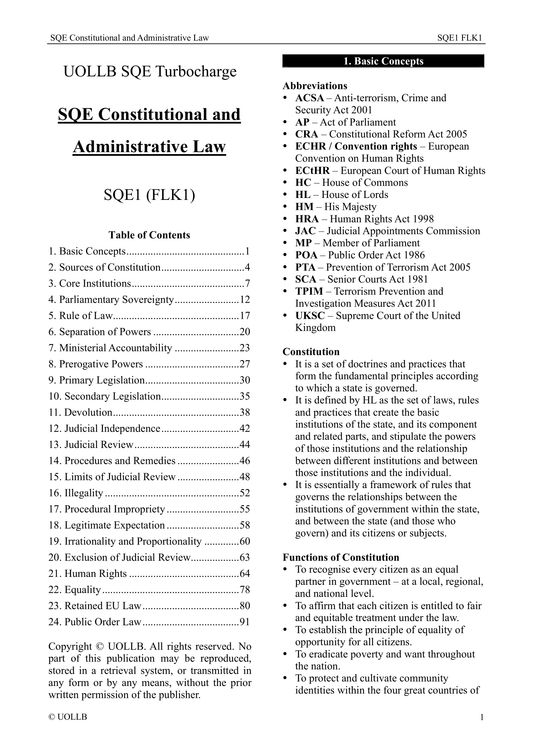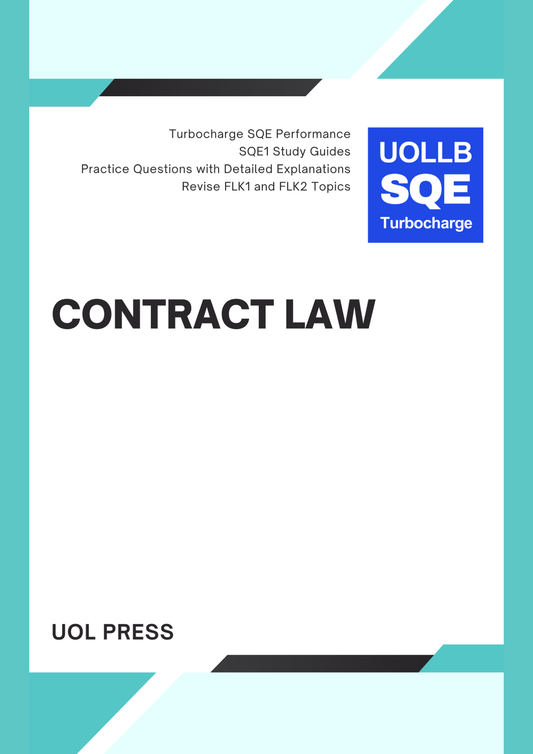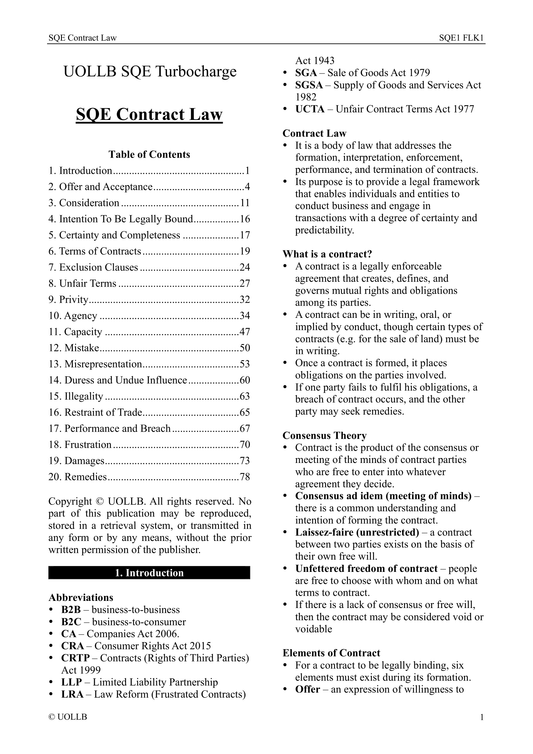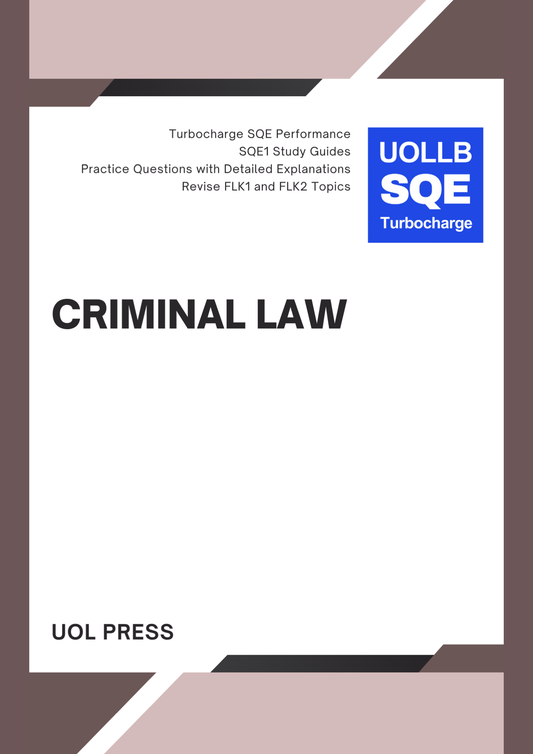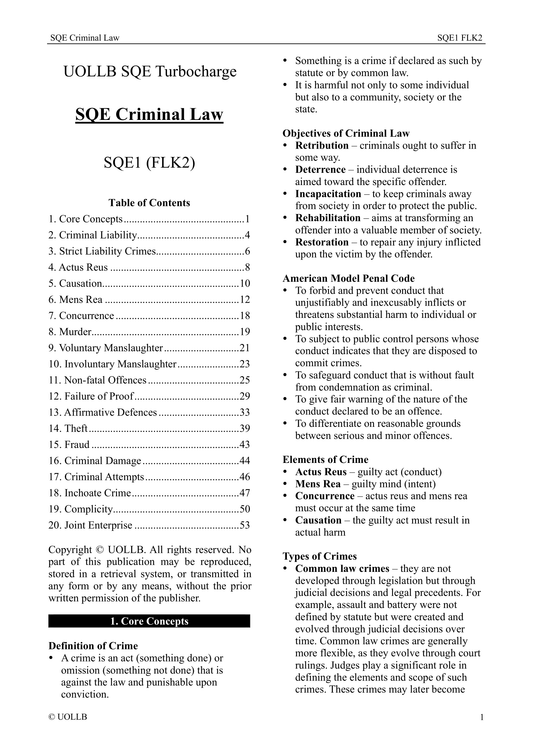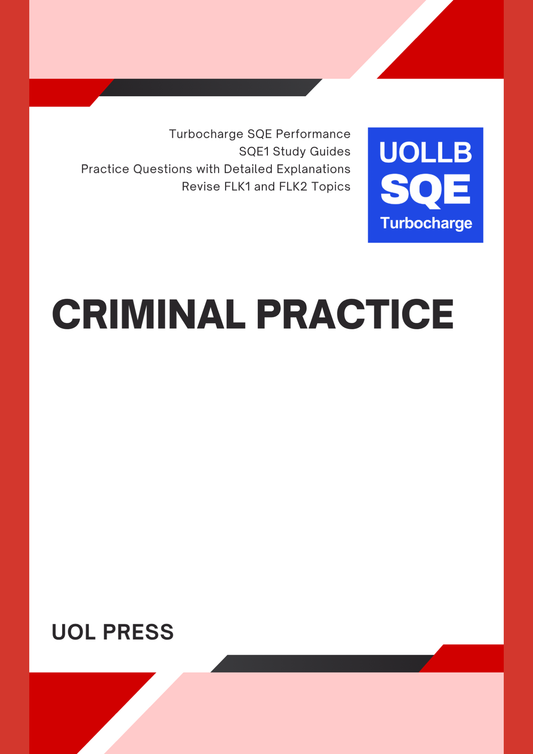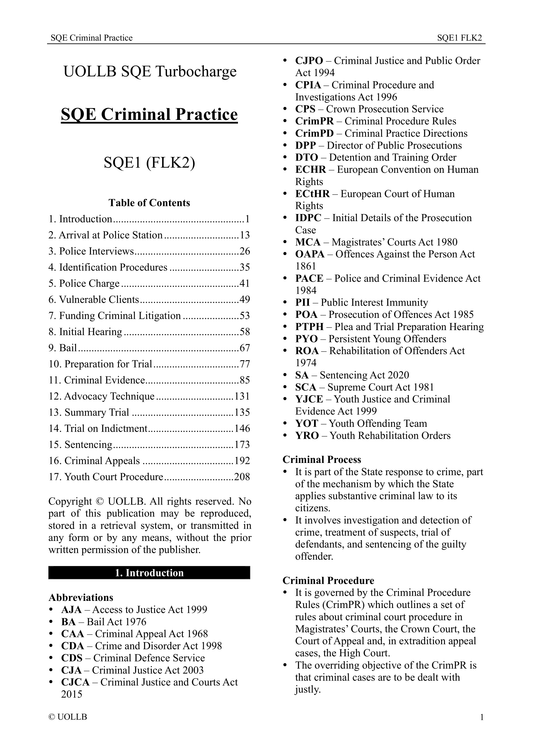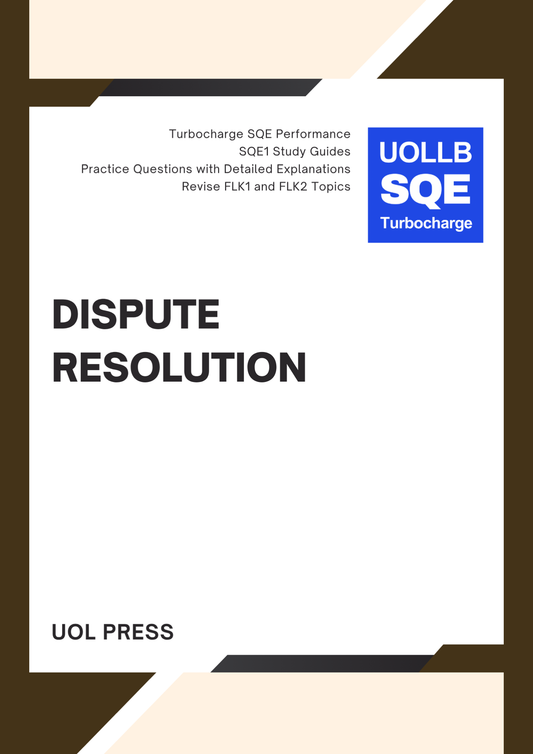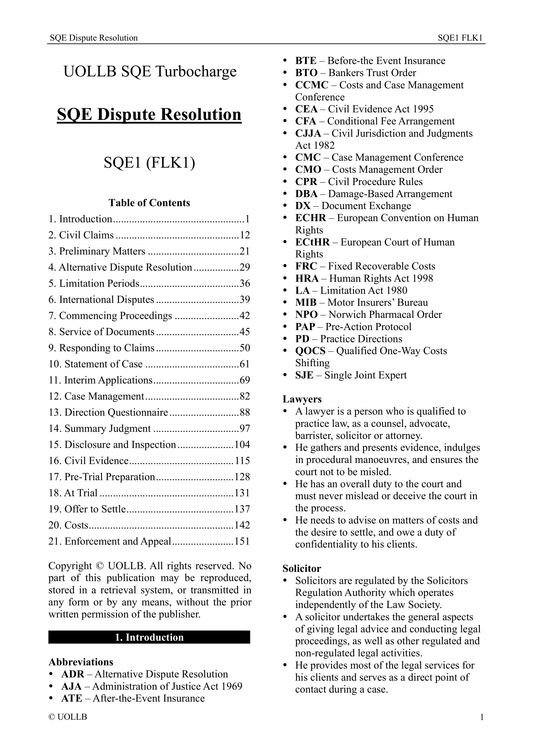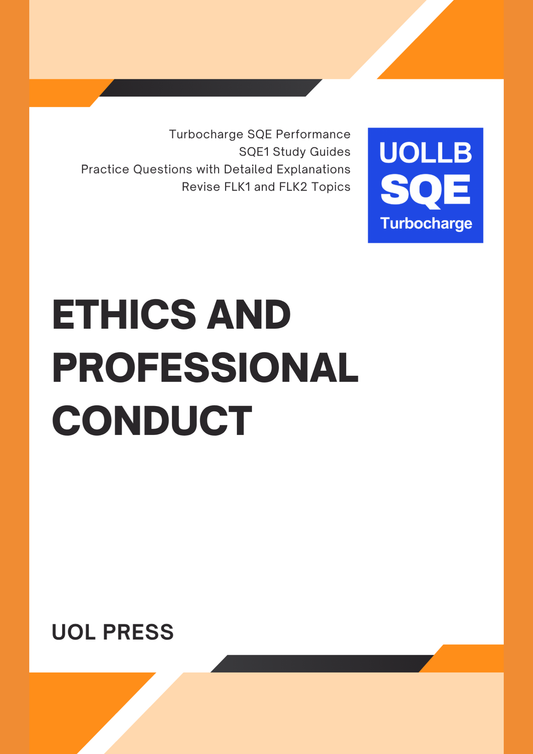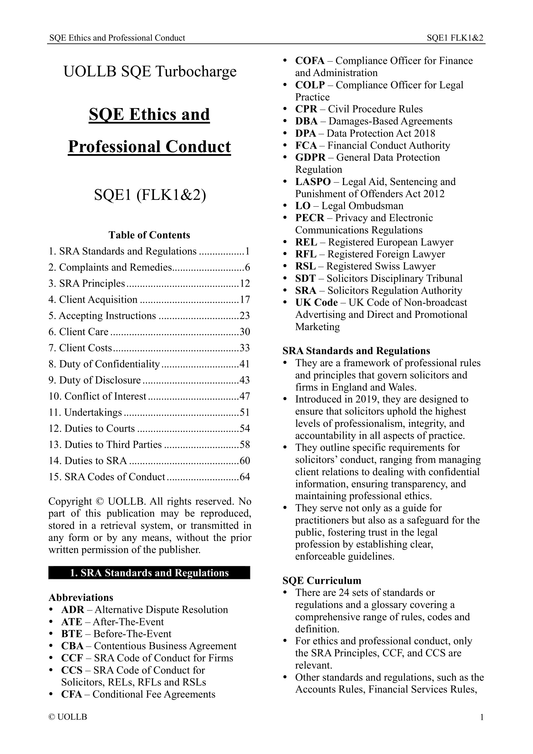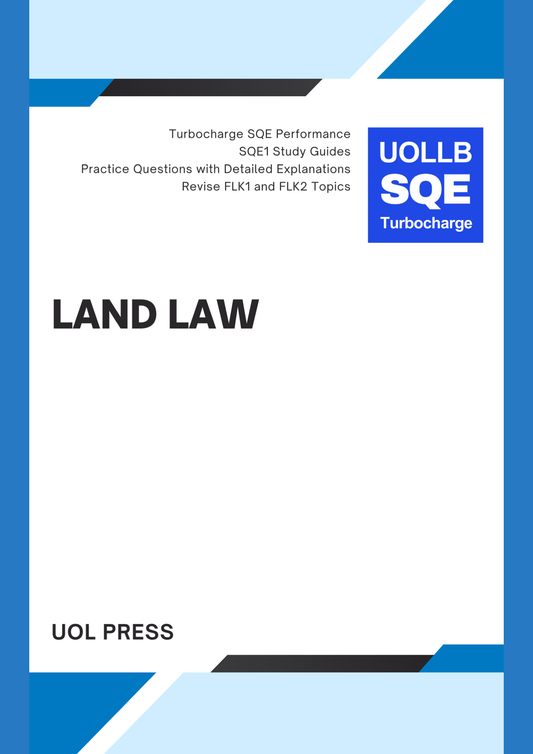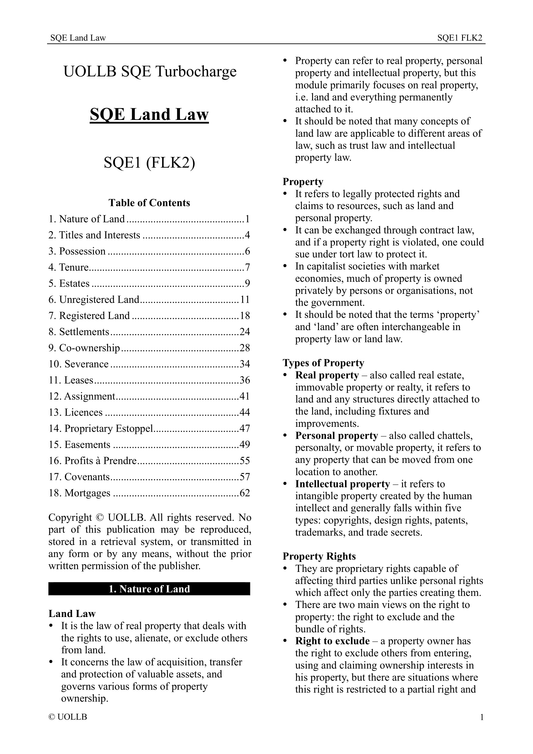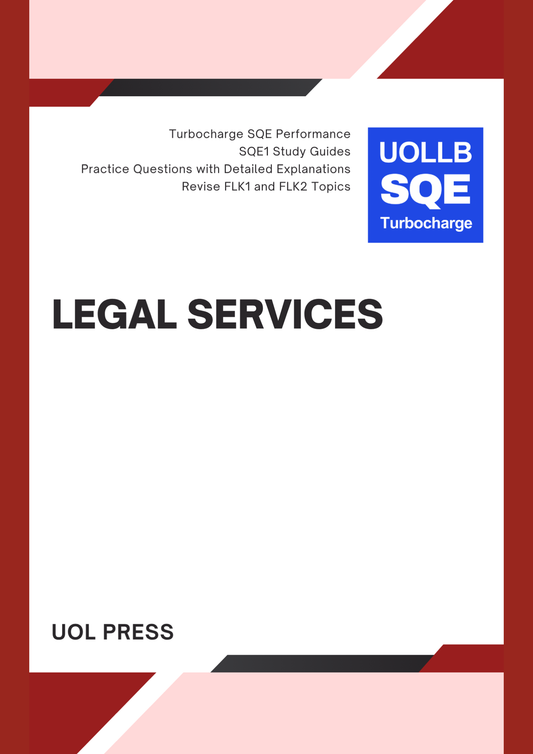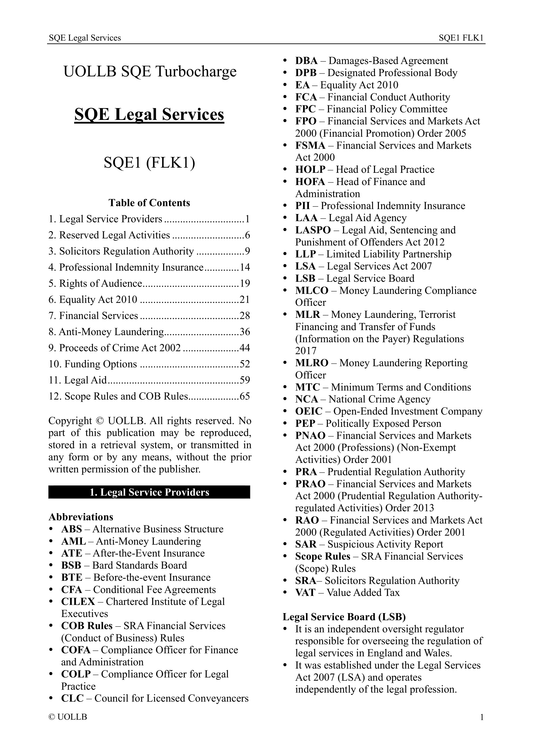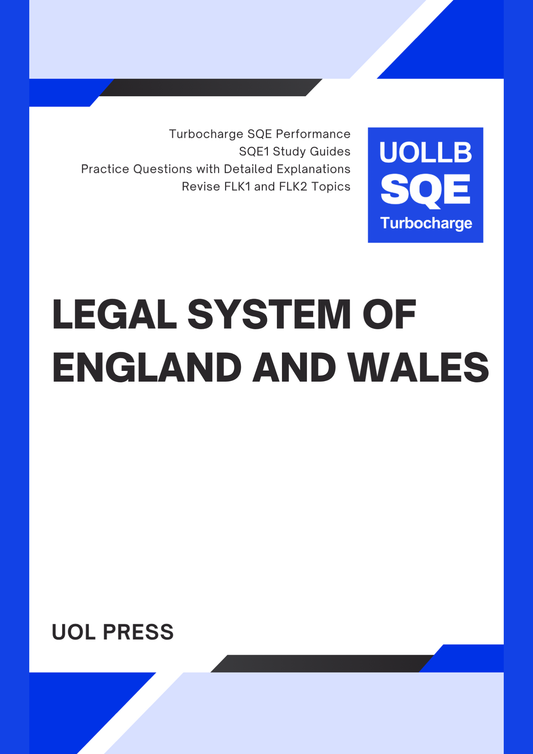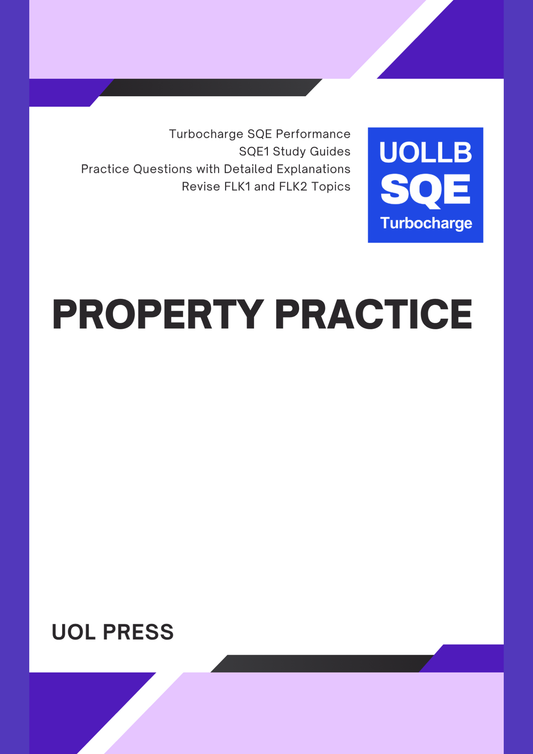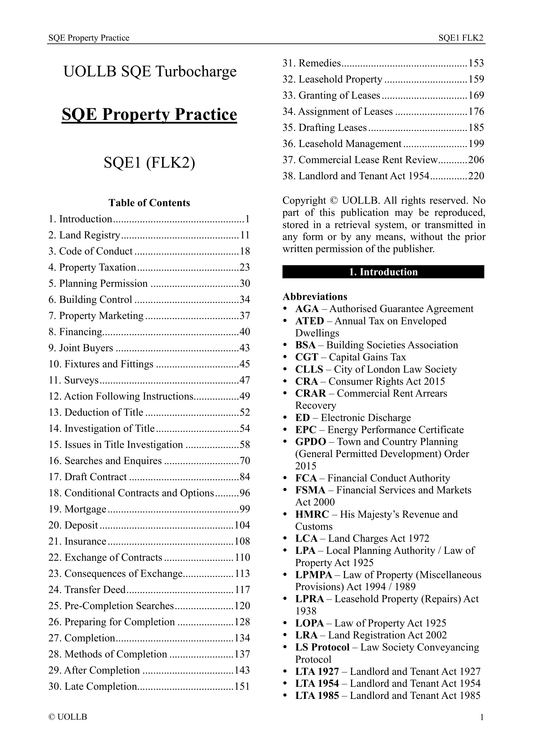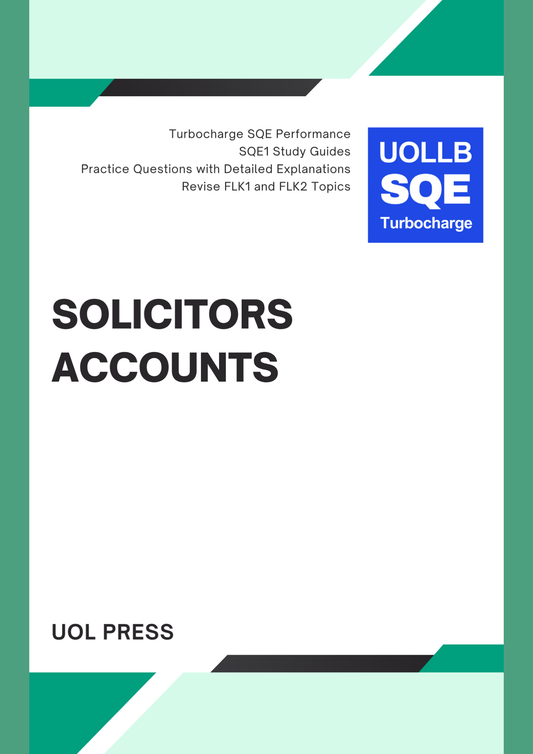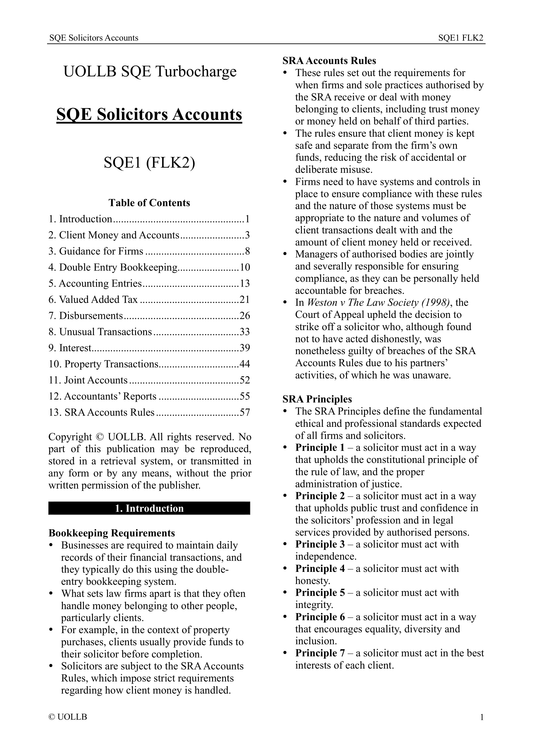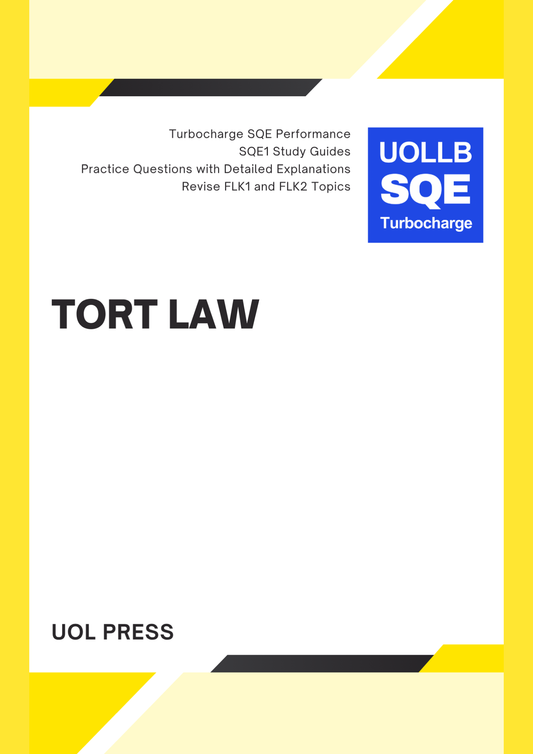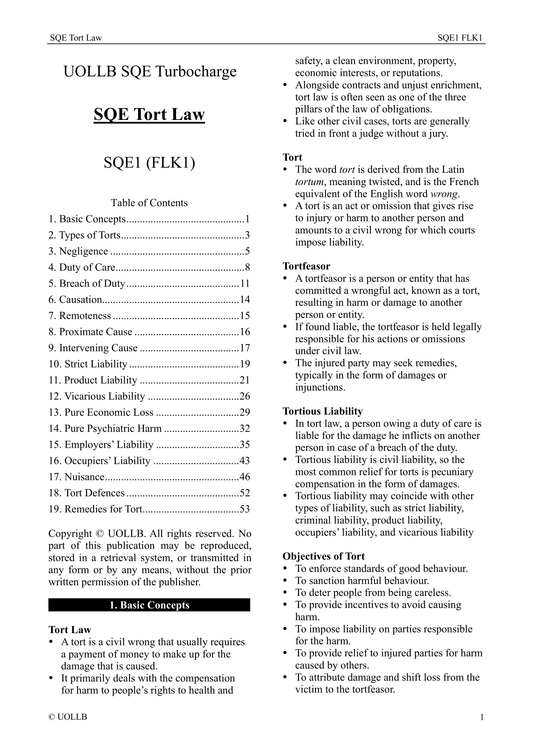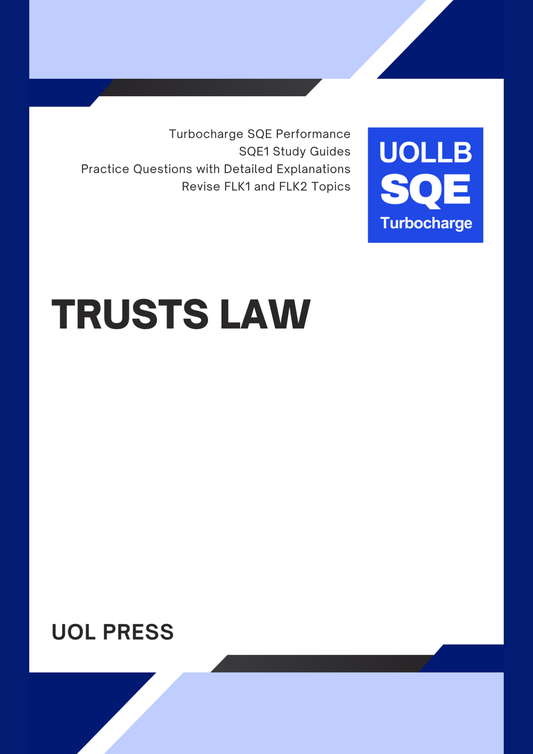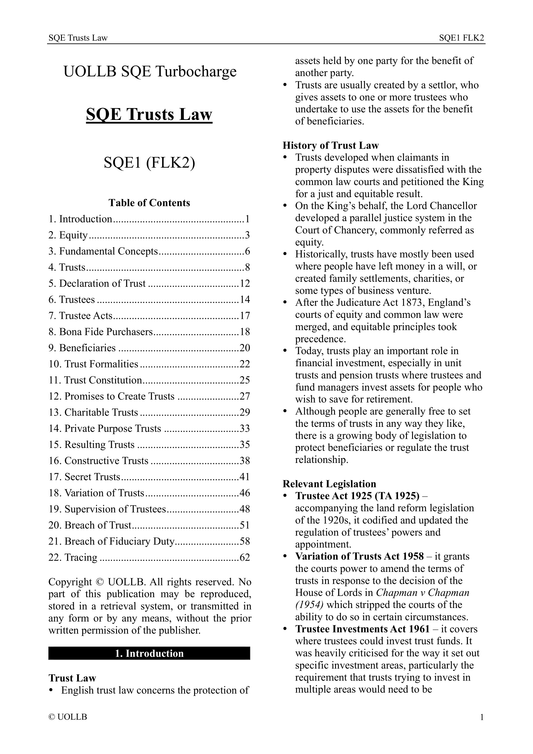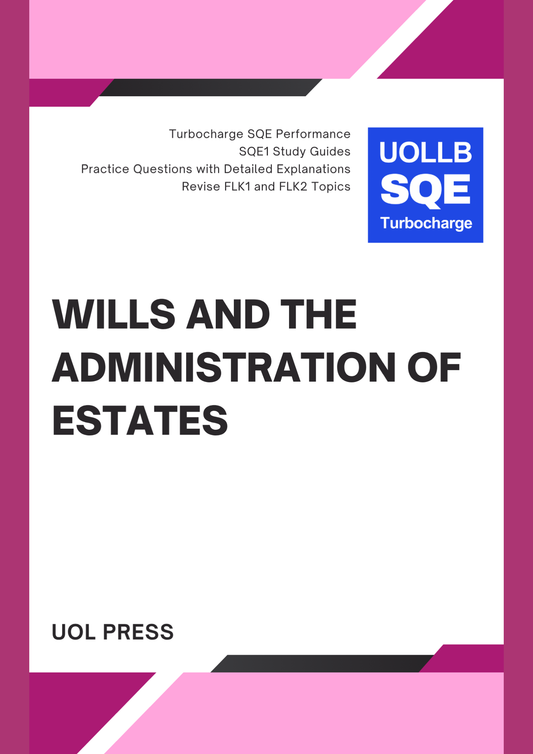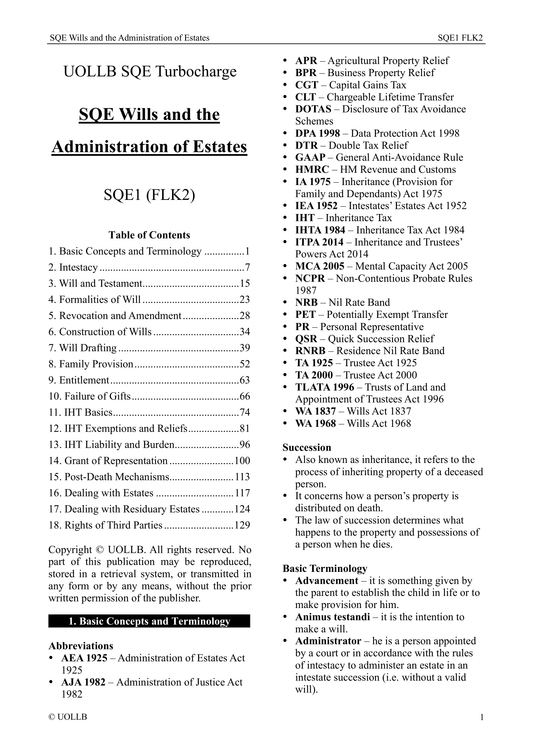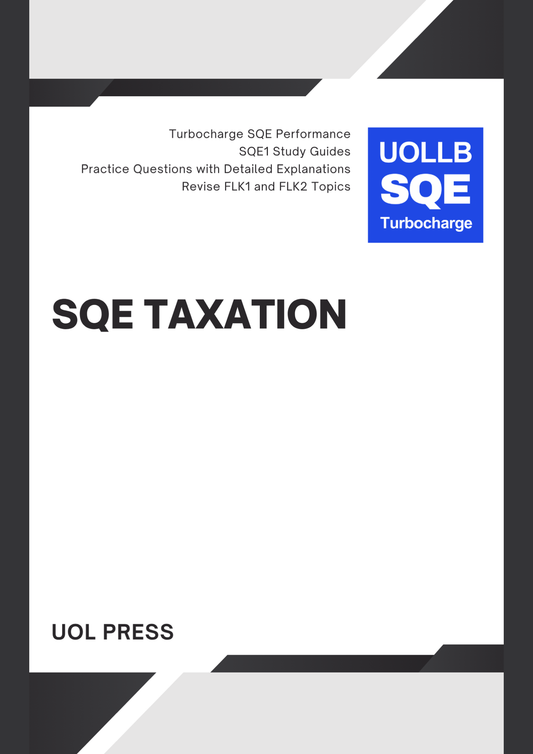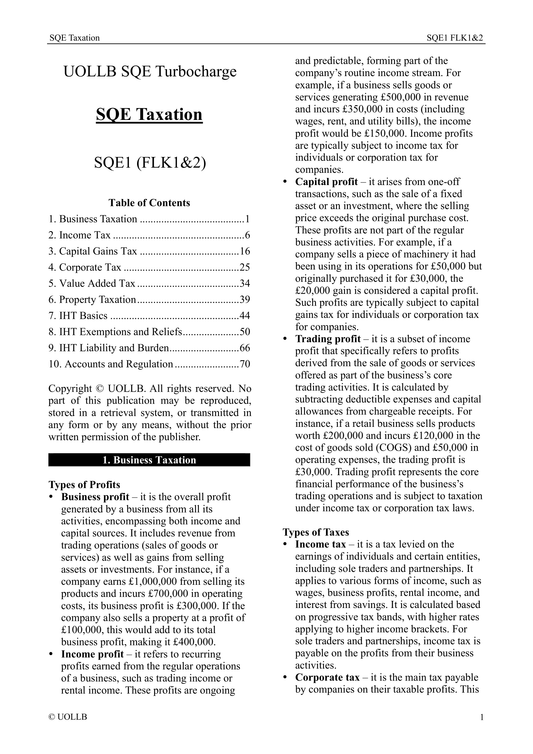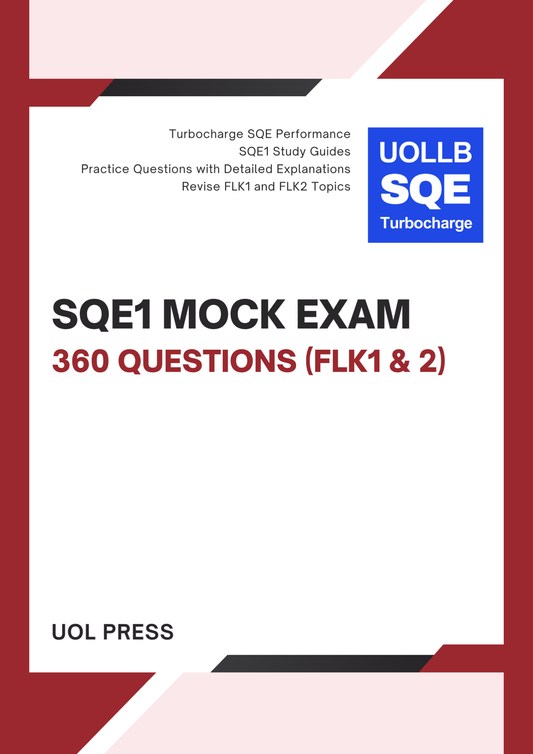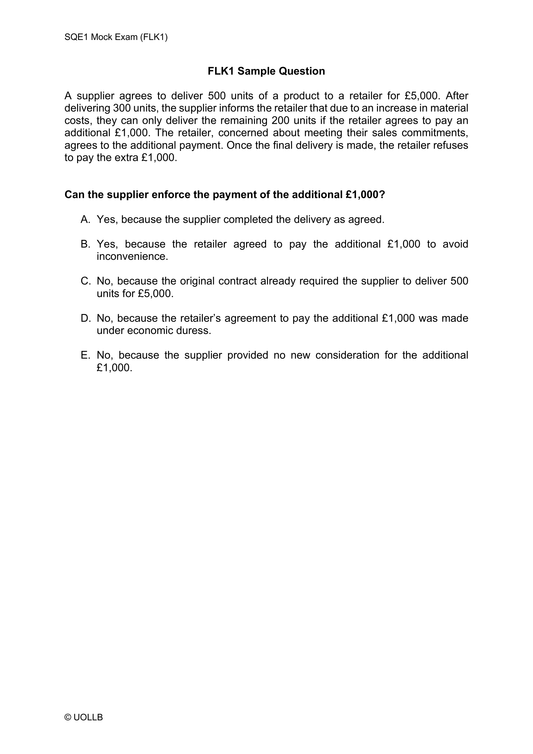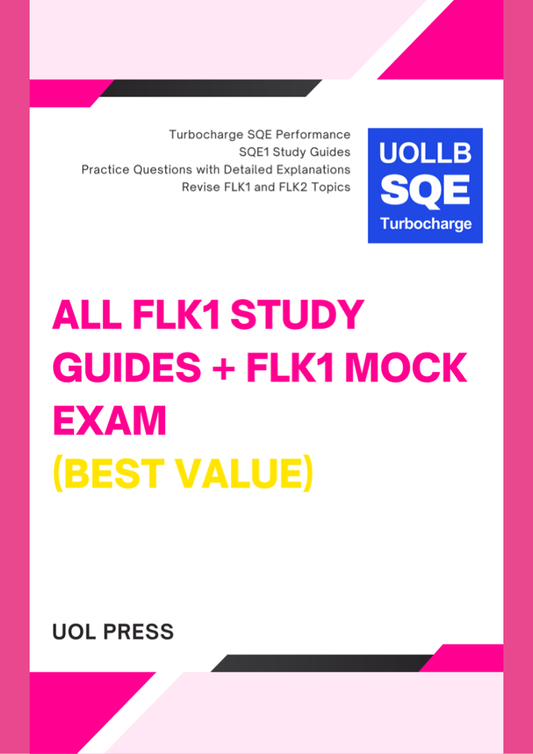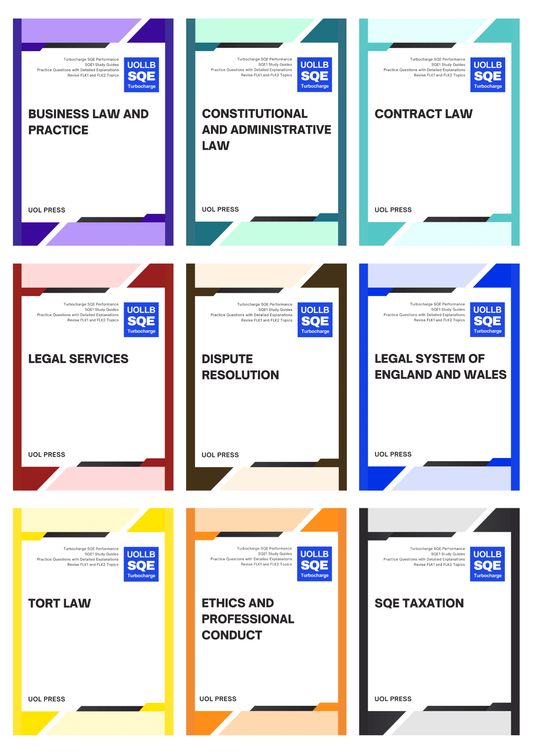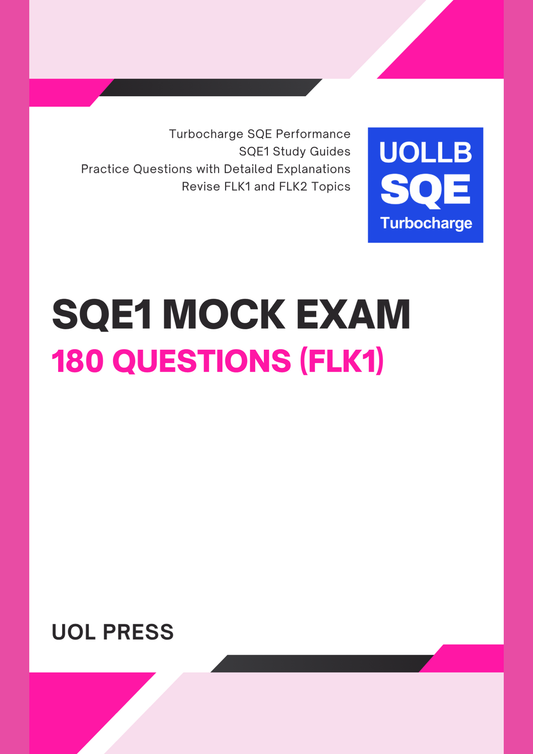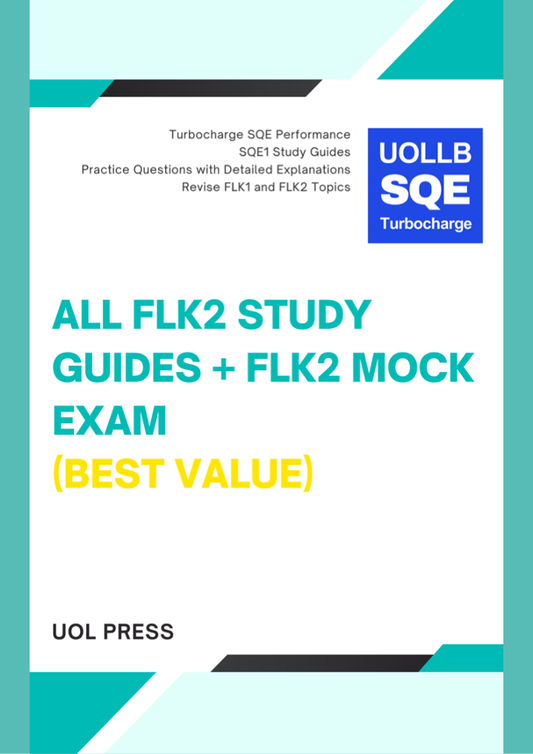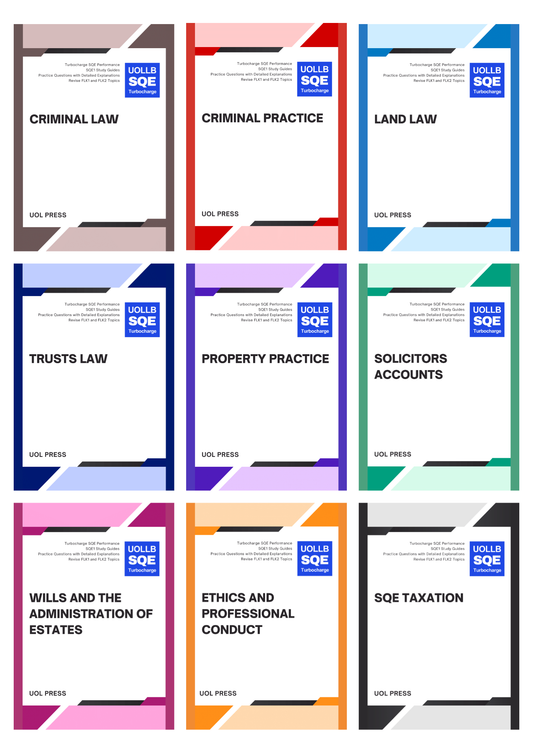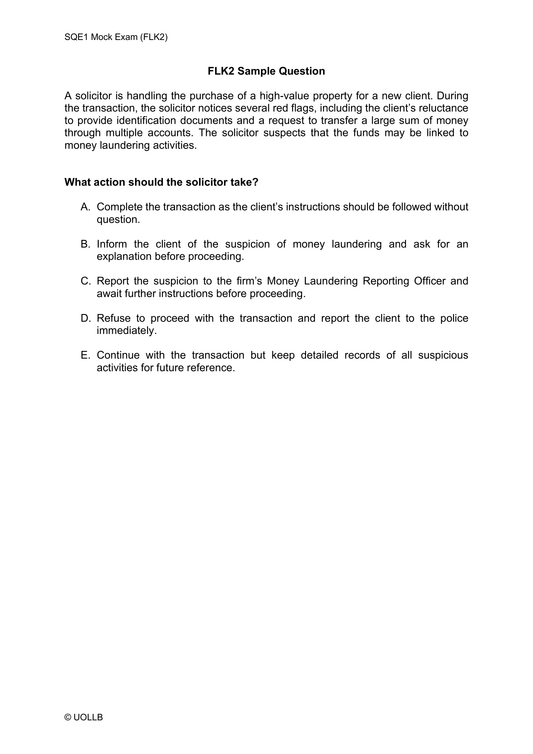Functioning Legal Knowledge 1 (FLK1)
Share
Functioning Legal Knowledge 1 (FLK1) is the first part of the SQE1 assessment, which tests your knowledge and understanding of fundamental areas of substantive and procedural law. FLK1 focuses on legal principles and their application to realistic scenarios, requiring you to demonstrate the breadth and depth of their legal knowledge. FLK1 covers the following areas:
Business Law and Practice
This area focuses on the legal framework governing business structures and operations. It includes key aspects of setting up and running businesses, such as the formation and registration of companies, partnerships, and sole proprietorships. You are required to understand corporate governance, including the roles and responsibilities of directors and shareholders. Topics also cover business finance, such as equity and debt financing, along with associated legal and regulatory requirements. Taxation is another critical element, examining the implications of taxes on business decisions, including corporate tax, VAT, and income tax for different business entities. Lastly, business transactions like the sale and purchase of businesses, drafting contracts, and managing commercial risks are integral to this area.
Constitutional and Administrative Law
This area examines the principles of public law, focusing on the legal framework governing the relationship between individuals and the state. You must understand the rule of law, separation of powers, and the role of constitutional conventions in the UK's uncodified constitution. Judicial review is a key focus, including the grounds for challenging public decisions, such as illegality, irrationality, and procedural impropriety. The impact of EU law on domestic law, especially post-Brexit, is also assessed, including retained EU law and its interpretation. This area ensures that you understand the legal mechanisms for holding public bodies accountable and the evolving relationship between domestic and international law.
Contract Law
Contract law examines the principles that govern the creation, performance, and enforcement of agreements. You must understand the formation of contracts, including the requirements of offer, acceptance, consideration, and intention to create legal relations. Performance and discharge of contracts are key topics, exploring how obligations are fulfilled or terminated, whether by performance, breach, frustration, or mutual agreement. Remedies for breach of contract, such as damages, rescission, or specific performance, are central to this area. You are also expected to understand terms of contracts, distinguishing between conditions, warranties, and innominate terms, as well as issues related to misrepresentation, duress, and undue influence.
Dispute Resolution
This area delves into civil litigation processes and the methods available for resolving disputes. It includes procedural aspects such as case management, preparing claims, filing defences, interim applications, and rules of evidence. You must understand the remedies available in civil cases, such as damages, injunctions, or specific performance. Alternative Dispute Resolution methods, including negotiation, mediation, and arbitration, are also critical, requiring you to advise clients on cost-effective and efficient ways to resolve disputes outside of court. This area emphasises practical application, requiring knowledge of procedural rules under the Civil Procedure Rules and strategies for representing clients effectively in civil matters.
Legal Services
Legal Services focuses on the regulatory framework governing the provision of legal advice and representation in England and Wales. It covers the roles and responsibilities of solicitors, their obligations under the SRA Code of Conduct, and the ethical standards expected in practice. Key topics include reserved legal activities, the regulation of alternative business structures, and the client care principles that underpin professional relationships. You must also understand the legal and practical implications of complaints, redress, and the role of the Legal Ombudsman. This area ensures that you are prepared to deliver high-quality legal services while complying with regulatory and professional requirements.
Legal System of England and Wales
This area provides the foundational knowledge of how the legal system operates. It covers the structure of the courts, including the hierarchy of civil and criminal courts and their jurisdiction. The role of legal professionals, such as solicitors, barristers, and judges, is central, as is the relationship between these roles and the administration of justice. You are expected to understand sources of law, including common law, statute law, and European Union influences, as well as principles of statutory interpretation that guide the application of legislation. This area ensures that you have a clear understanding of how the legal system functions and their role within it.
Tort Law
Tort law focuses on civil wrongs and the legal principles governing liability. You must demonstrate knowledge of negligence, including duty of care, breach, causation, and remoteness of damage, as well as defences such as contributory negligence and volenti non fit injuria. Other torts such as nuisance (both public and private), trespass to land, and defamation are covered, with an emphasis on remedies such as damages and injunctions. The area also explores the balance between protecting individuals’ rights and imposing reasonable limits on liability, including defences and statutory frameworks.
FLK1 is assessed through multiple-choice questions requiring you to select the best answer from several plausible options. The questions are designed to test both knowledge and the ability to apply it in practical, client-focused scenarios, reflecting the standard of a newly qualified solicitor.
